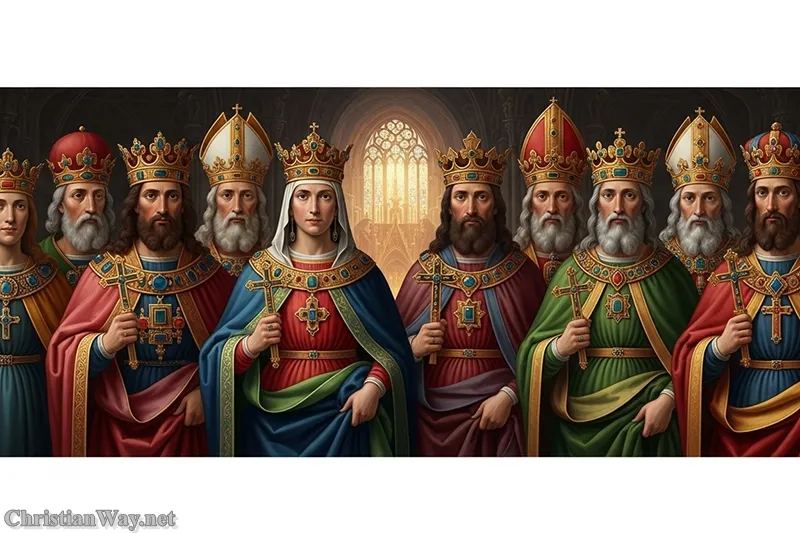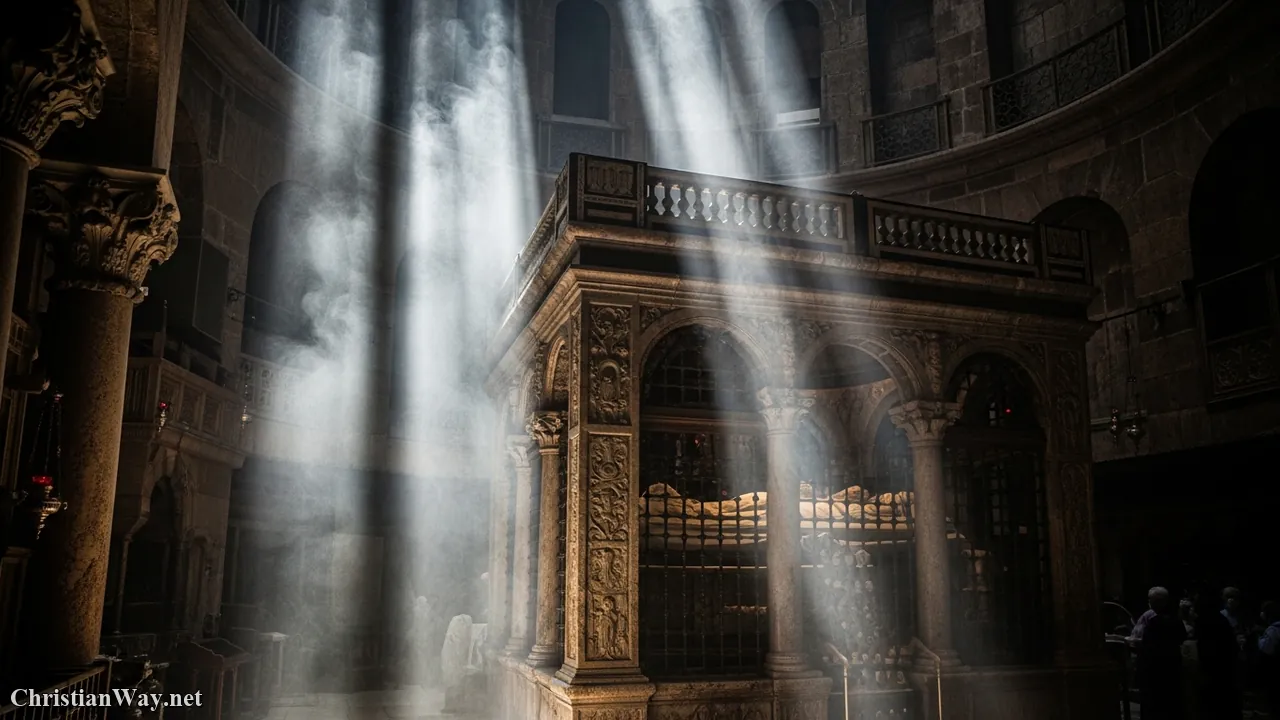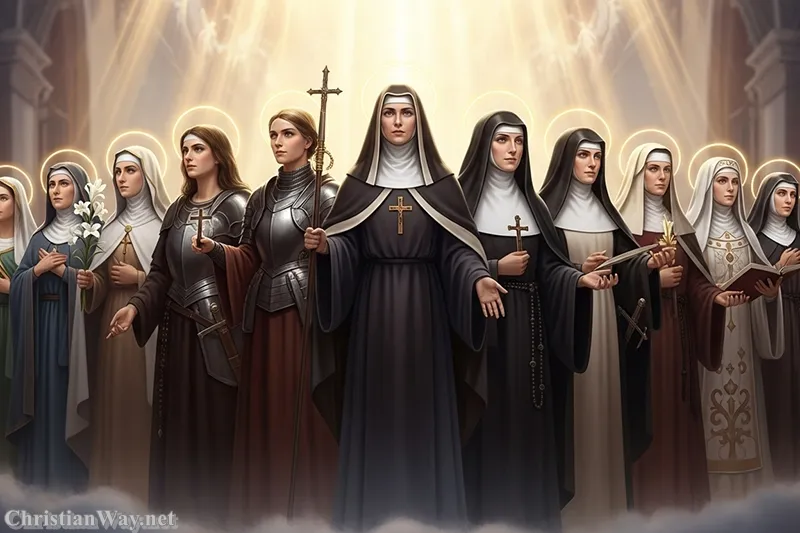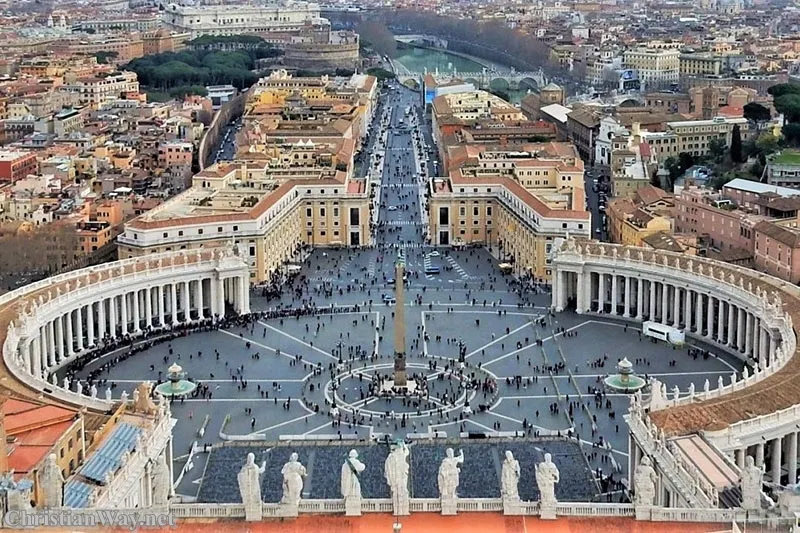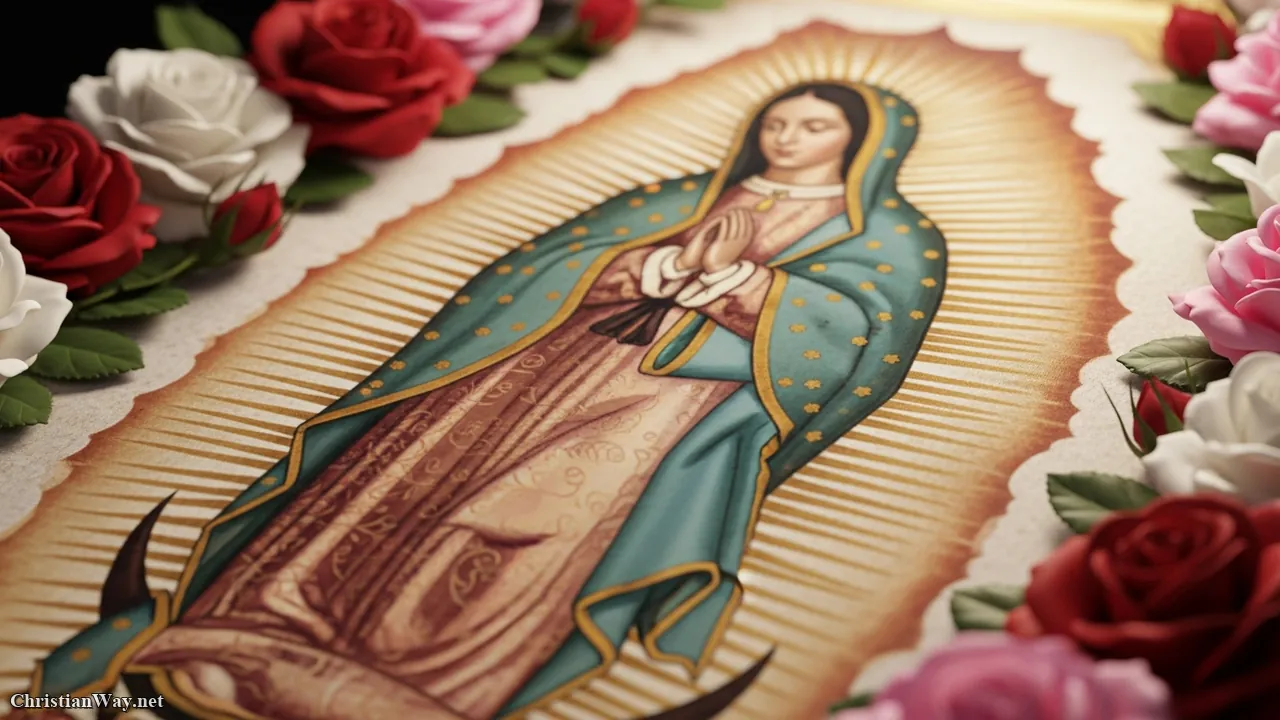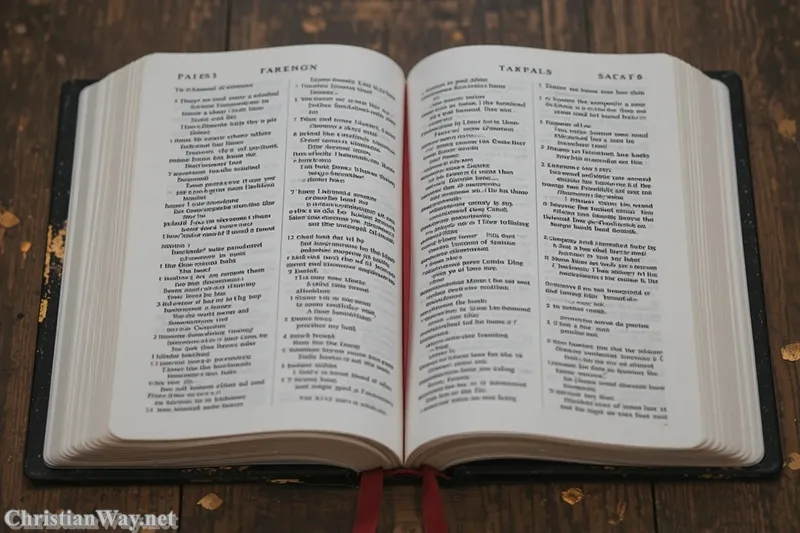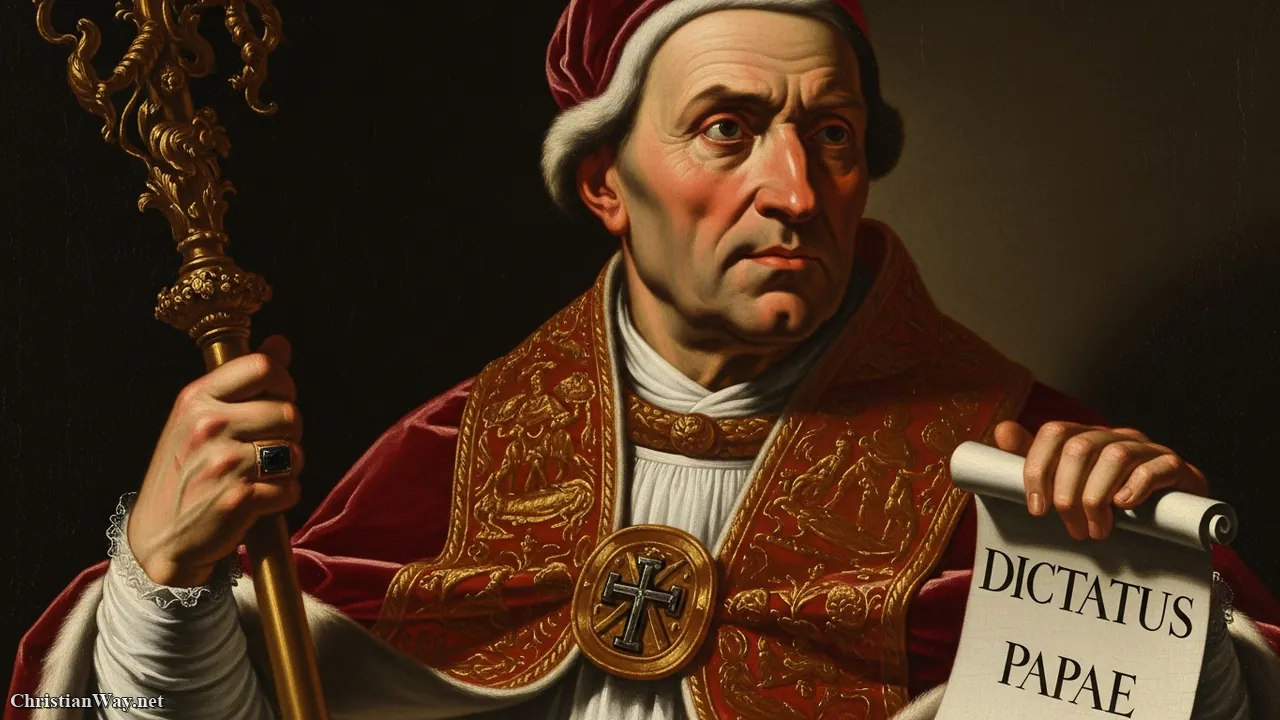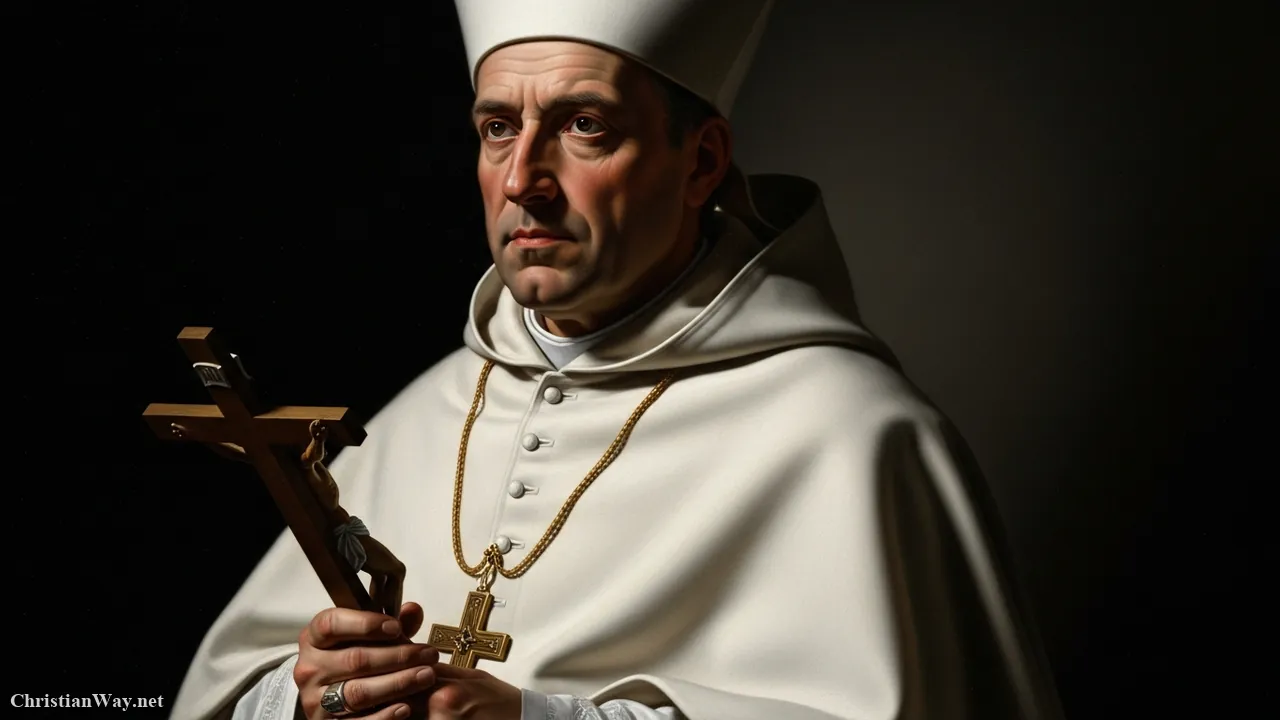Dear friends in Christ,
Every age of the Church bears the marks of faith — but none shines more purely than the first centuries, when the followers of Christ walked among a world that did not yet know Him. In those early generations, believers often lived in hidden places, prayed in catacombs, and faced persecution with hearts full of courage and peace. From their lives, the foundations of Christian holiness were formed — through martyrdom, teaching, and unshakeable love.
This list of early Church saints (1st–5th century) is not simply a historical record. It is a sacred remembrance of the men and women who, in the dawn of Christianity, bore witness to Jesus Christ with their very lives. Their faith gave shape to the Church’s worship, theology, and spiritual life. Their blood and prayers became the seed from which Christianity flourished across the world.
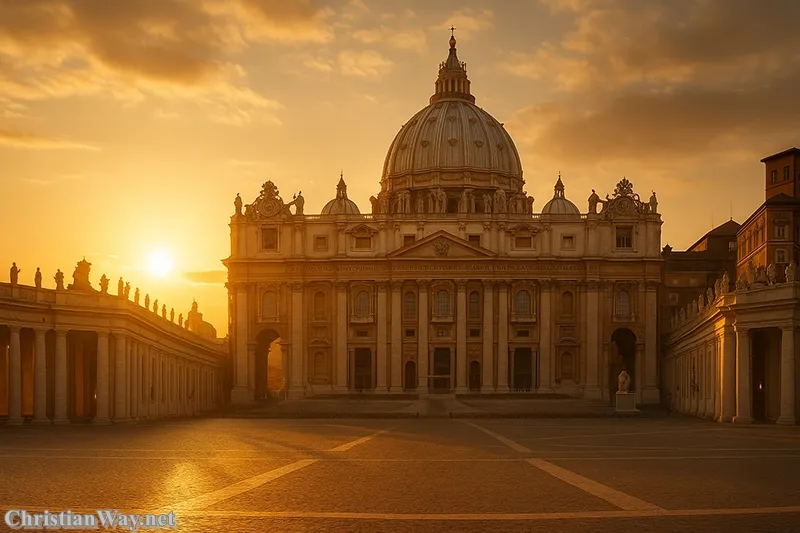
Let us now walk through the centuries of the early Church, remembering the ancient saints whose lives continue to inspire the faithful today.
🕊️ The Apostolic Age (1st Century): The First Saints of Christianity
The first saints of the Church were those who walked directly with Christ or were among His earliest followers. Their witness established the very heart of the Gospel.
Saint Peter, Apostle and Martyr
The first Pope and the “rock” upon whom Christ built His Church, St. Peter’s faith and repentance remain a timeless model for believers. Crucified upside down in Rome under Emperor Nero, he symbolizes humility and steadfast love for the Lord.
Saint Paul the Apostle
Once a persecutor of Christians, St. Paul became the tireless missionary to the Gentiles. His letters — full of faith, theology, and divine insight — shaped Christian doctrine and continue to speak powerfully to hearts today.
Saint James the Greater
One of the first apostles to face martyrdom, St. James brought the Gospel to the Iberian Peninsula. His shrine in Santiago de Compostela would later become one of the most famous Catholic pilgrimage sites in the world.
Saint John the Apostle and Evangelist
The beloved disciple, author of the Gospel of John, three epistles, and Revelation. His words — “God is love” — reveal the very essence of Christian faith. Tradition holds that he lived to old age, a living memory of Christ’s friendship.
Saint Mary Magdalene
Once broken by sin but restored by grace, Mary Magdalene was the first to witness the Risen Christ. She is rightly called the “Apostle to the Apostles,” a sign that love redeems and transforms.
Saint Stephen the Protomartyr
The first Christian martyr, his death by stoning marked the beginning of the Church’s age of witness. His prayer for forgiveness — “Lord, do not hold this sin against them” — echoes the mercy of Christ Himself.
🔥 The Age of Persecution (2nd–3rd Century): Martyrs of the Ancient Church
In these centuries, the Church lived under constant threat. Yet, amid persecution, countless saints bore testimony to the truth of Christ with their blood.
Saint Ignatius of Antioch (d. 107)
A disciple of St. John, Ignatius wrote letters full of love for Christ and unity with the Church. On his way to martyrdom in Rome, he proclaimed, “Let me be food for the wild beasts, through whom I may attain to God.”
Saint Polycarp of Smyrna (d. c. 155)
Another disciple of the apostles, Polycarp faced martyrdom with serenity. When asked to renounce Christ, he replied, “Eighty-six years I have served Him, and He has done me no wrong. How can I blaspheme my King who saved me?”
Saint Justin Martyr (d. 165)
A philosopher turned Christian, Justin sought to unite faith and reason. His writings laid early foundations for Christian apologetics, defending the faith before emperors and skeptics alike.
Saint Cecilia (d. c. 230)
The patron saint of music, Cecilia offered her life in praise even as she suffered martyrdom. Her witness reveals how beauty and faith are inseparable expressions of divine love.
Saint Lawrence the Deacon (d. 258)
When commanded to hand over the Church’s treasures, Lawrence presented the poor and the sick, declaring, “These are the treasures of the Church.” He was martyred on a gridiron, his courage lighting the faith of Rome.
Saint Perpetua and Saint Felicity (d. 203)
Two women — one noble, one servant — united in faith and martyrdom. Their story, preserved in The Passion of Perpetua and Felicity, remains one of the most moving accounts of early Christian heroism.
Saint Irenaeus of Lyons (d. 202)
A bridge between East and West, Irenaeus defended the truth of the faith against heresy and articulated the harmony of Scripture and Tradition. His famous line still echoes: “The glory of God is man fully alive.”
🏛️ The Age of the Church Fathers (4th Century): Saints of Wisdom and Faith
After Emperor Constantine’s conversion and the Edict of Milan (313 AD), persecution ceased — yet new challenges arose. The Church now needed teachers to preserve truth and unity amid theological conflict.
Saint Athanasius of Alexandria (296–373)
The great defender of Christ’s divinity against Arianism, Athanasius spent much of his life in exile. His steadfast faith preserved the Nicene Creed’s central confession: that Jesus is “true God from true God.”
Saint Basil the Great (329–379)
One of the Cappadocian Fathers, Basil wrote profoundly on the Holy Spirit, monastic life, and charity. His influence shaped both Eastern and Western Christian spirituality.
Saint Gregory of Nazianzus (329–390)
Called “The Theologian,” Gregory’s eloquent sermons on the Trinity remain among the finest expressions of Christian theology. His words combine poetry, intellect, and deep humility before the mystery of God.
Saint Gregory of Nyssa (335–395)
Brother of St. Basil, Gregory explored the soul’s ascent toward God — a journey of endless growth in love and knowledge. His mystical writings continue to inspire contemplation.
Saint Ambrose of Milan (340–397)
A courageous bishop who confronted emperors and converted Saint Augustine, Ambrose combined moral authority with gentle pastoral care. His hymns and writings shaped the Church’s liturgy and faith.
Saint Jerome (347–420)
A scholar and translator of the Latin Vulgate Bible, Jerome’s work gave the Church a common Scripture for centuries. His fiery devotion reminds us that scholarship and holiness can walk hand in hand.
Saint John Chrysostom (347–407)
Known as “Golden-Mouthed,” John’s preaching illuminated Scripture with clarity and compassion. Though often persecuted for his outspokenness, his legacy endures in liturgy and teaching.
Saint Monica (332–387)
The mother of Saint Augustine, Monica’s tears and prayers became the instruments of her son’s conversion. She represents the quiet power of faithful love in family life.
🌿 The Age of Conversion and Monasticism (5th Century): Saints Who Shaped the Christian World
As the Roman Empire waned, the Church began to spread across new frontiers — through missionaries, monks, and bishops who carried the Gospel to every corner of the known world.
Saint Augustine of Hippo (354–430)
One of the greatest theologians of all time, Augustine’s Confessions remain a spiritual classic. His thought on grace, sin, and the love of God profoundly shaped Christian doctrine and continues to guide countless believers.
Saint Jerome (revisited)
Though he lived into the 5th century, Jerome’s scholarship bridged the classical world and the emerging Christian age — an enduring light in an era of change.
Saint Leo the Great (400–461)
Pope Leo I guided the Church through chaos, defining Christ’s two natures at the Council of Chalcedon and defending Rome from invaders. His faith and courage marked him as one of the most influential early popes.
Saint Patrick of Ireland (c. 385–461)
Born a Roman Briton, Patrick was enslaved by Irish raiders before escaping and returning as a missionary. Through his preaching and miracles, he converted an entire nation and became one of the most beloved ancient saints in Christian memory.
Saint Augustine of Canterbury (early 6th century precursor)
Though slightly beyond the 5th century, Augustine’s mission to England reflected the missionary spirit born in this era — the fruit of the saints who came before him.
Saint Benedict of Nursia (480–547)
At the threshold of a new age, Benedict founded monastic life in the West. His Rule shaped Christian spirituality for over a millennium. Though born in the 5th century, his work marked the dawn of a new era — built on the holiness of those who came before.
✨ The Legacy of the Early Church Saints
From the apostles to the doctors of the Church, from martyrs to monks, these early saints formed the living foundation of Christian civilization. They prayed in catacombs, preached in marketplaces, wrote by candlelight, and sang psalms while facing death. Through them, faith was no longer an idea — it became a way of life.
Their courage calls us to steadfastness; their wisdom calls us to seek truth; their holiness calls us to love. And though centuries separate us, the same Spirit who strengthened them lives in the Church today.
When we pray the Creed, celebrate the Eucharist, or whisper a prayer in the dark, we are joined to their same faith — one, holy, and apostolic.
🙏 Reflect and Pray
You raised up countless saints in the first centuries of Your Church —
men and women who carried Your light through persecution, exile, and death.
Grant us the same courage, patience, and faith that burned within their hearts.
May their example draw us closer to You,
and may the Church today, built upon their witness,
shine with the same radiant love that once conquered the ancient world.
Amen.
— Fr. John Matthew, for Christian Way
